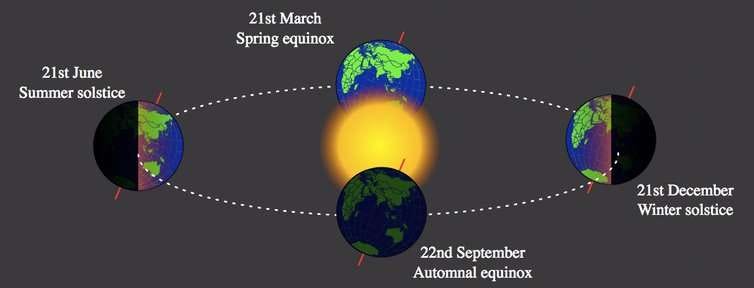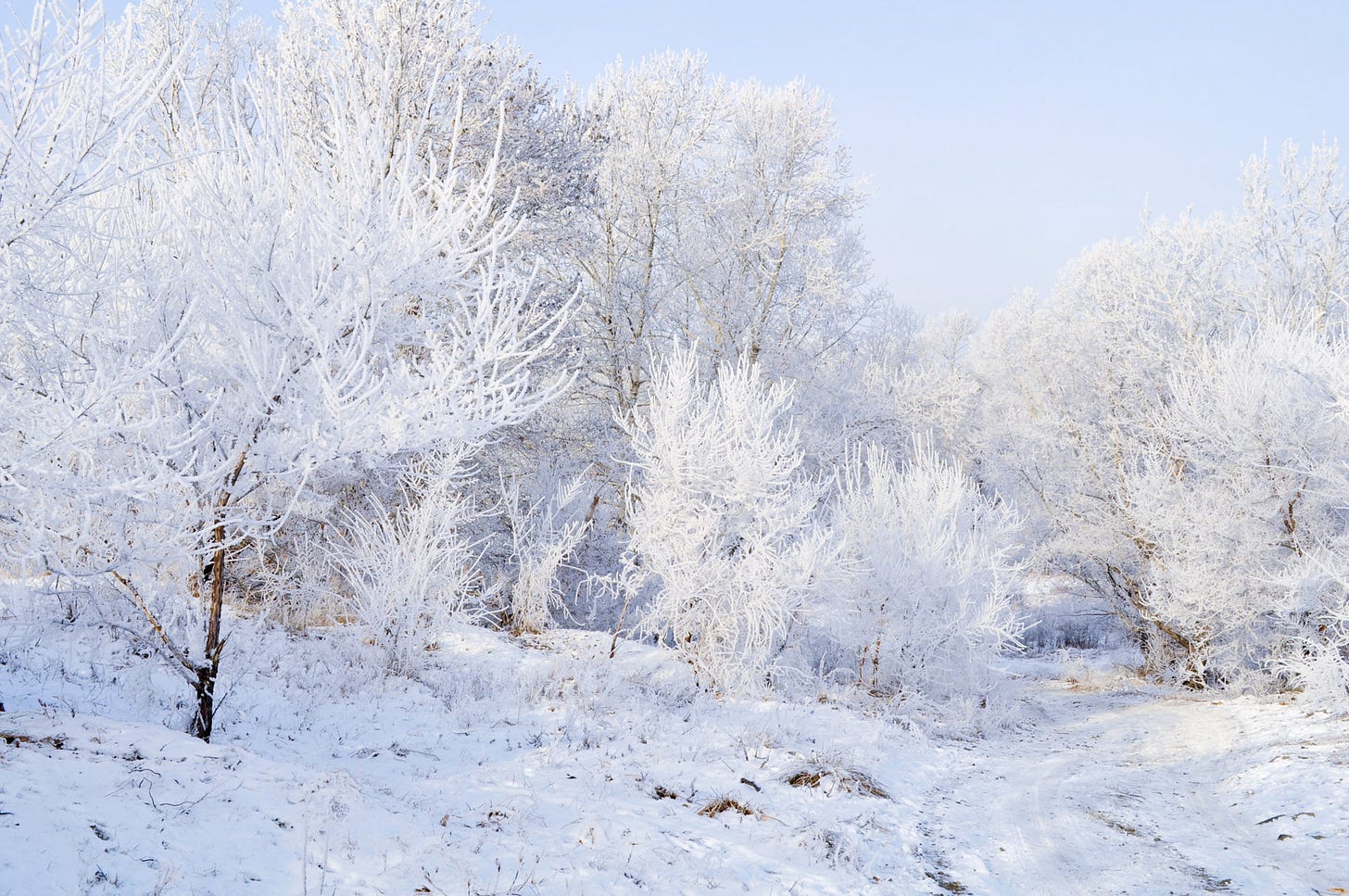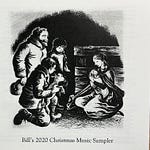Today’s song
Today’s song is Fire and Wine by English folk-rock pioneer Steve Ashley. He wrote it in 1967 to be an anthem for winter celebrations at the Maidstone Folk Club where he was a founding member along with Peter Bellamy. The song quickly spread to the broader English folk music community where people were seeking a winter song that reflected the season’s pagan roots. There have been acoustic renditions of it recorded by Anne Briggs in 1971, Vulcan’s Hammer in 1973, Hannah Sanders and Liz Simmons in 2013, and Belinda O'Hooley and Heidi Tidow in 2017. This recording comes from Ashley’s highly influential debut folk rock album Stroll On released in 1974. The lyrics are available here.
Essay: World views; mine and my ancestors [word count 1138]
I was born and raised in Minnesota but have spent my whole adult life living in Victoria, BC, in western Canada. My immediate ancestors were all “pure laine” French-Canadians, meaning we are all descended from French settlers who came to Quebec from 1609-1763 before the English conquest.
Those settlers, all Catholic, were mostly descended from Iron Age Gaulish pagans. The Gauls were a Celtic people who in turn were descended from homo sapiens (and some Neanderthals) who migrated to Europe and the Middle East from Africa as long as 100,000 years ago or more.
In my lifetime, as with my Celtic ancestors and their earlier forbearers, I have experienced the winter season not only through its differences from the other seasons in weather, but also through the differences in the lengths of days and nights. According to astronomical, today here in Victoria, the sun rose at 7:41AM and will set at 4:21PM, yielding a short day that is only 8:41 long and a long night that is 15:19 long. The sun will rise to a maximum height of only 20 degrees above the southern horizon.
Although I was awake, I didn’t see that sunrise, and I won’t see how high the sun rises in the sky during the day or the sunset. Speaking from 50 years of living here, this week we are having what I consider to be a pretty typical winter weather for Victoria:
At this time of the year the nights are still getting longer but the differences are very slight – measured in a few minutes each day now, and in two weeks, only a few seconds each day. On the winter solstice (Dec 21, the longest night of the year) there will be 8:18 hours of daytime and 15:42 of nighttime – a difference from today of only 23 minutes. Therefore, for all practical purposes, it is already mid-winter. (You can get this kind of data for the sun and the moon for anywhere on earth, as well as times for other astronomical information, here.)
This short day is dramatically different from mid-summer here in Victoria. Then, the sun will rise to 65 degrees above the horizon, the day will be almost twice as long as the night, and the final stages of evening dusk will barely end before the morning twilight begins. And I will probably get to actually see it: Victoria summers are usually sunny and dry.
My Quebec ancestors lived slightly further south, and my Gaulish/Celtic ancestors from around 2000 years ago and my even earlier ancestors who has settled that area after the retreating glaciers lived slightly further north, but the pattern of their lengths of days would have been quite similar.
But my European ancestors, as I am now, were on the north-west side of an ocean where winter weather is moderated by ocean currents that make the nearby water relatively warm (about 8°C or 46°F in winter.) In fact, the winter weather here in Victoria is much like that of coastal France and the Devon coast of England. The prevailing winds are warmed by having come from over those “warm” oceans. Our winter weather occasionally dips below freezing, and those cold spells usually only last for a few days.
Winter for my Quebec ancestors, and the Minnesota weather of my childhood, does not have that advantage. In those places the weather stays below freezing for most of the winter season, and cold spells can be very harsh indeed. As of today, winter has’t really started there yet, but everyone knows it’s coming soon. The coldest weather that I ever experienced in Minnesota was -45°F (which just happens to be about the same in Celsius.)
With this modern understanding based upon science I understand how all this works. Our planet circles around our Sun with its axis tilted. For a portion of each year the northern part of the globe is tipped towards the sun and it is summer. For another portion of the year it is tilted away from the Sun and it is winter.

This annual cycle is what shapes our weather. Since long before there have been humans on this planet this geometry has created a winter season during which the Sun does not rise as high in the sky, the days are shorter, the nights are longer, and the land receives less of the Sun's life-giving warmth. The stable ocean currents are created by the regularity of these annual changes in temperature. [Note: This stability may be threatened by climate change but I don’t intend to go into that issue in this series of music and essays.]
All plants and animals that evolved in or colonized the northern latitudes of our planet needed a survival strategy for the quarter of the year when nature provides little warmth and nourishment. Humans are no exception. When our ancient ancestors came north from Africa they had to develop ways to cope with the months when plants don't grow and game is scarce; when they needed shelter and fire to survive; when there sometimes are fierce winter storms; and a season when there always are long, cold, dark nights.
I don’t know how well my French Canadian ancestors (mostly poor peasants who had paid for their passage to New France with seven years of indentured servitude) understood the how and why of this annual cycle. Did they know why their winters here were so much harsher in Quebec than they had been when they had been in France? I don’t think that the Catholic priests and religious teachings were of much help for this kind of thing, other than to comfort them that their Faith and prayers to God would take care of everything.
Their Gaulish/Celtic ancestors (who lived from about the 5th century BCE to the 5th century CE) did have a world-view system that explained seasonal changes – in fact their entire religious system was developed to explain and deal with the agricultural seasonal cycle. We know about their beliefs from written history, from interpreting the archaeological evidence they left behind, from folkloric research and analysis, from other ways to study the past cultures.
We can even use modern research and analysis methods to understand pre-Celtic pagan beliefs from after the beginning of agriculture and civilization in the middle-east (about 7000 years ago).
Understanding of the beliefs of more-distant hunter-gatherer ancestors who settled in Europe before the invention of agriculture, is somewhat murkier. However, again, but we can use information from the disciplines of anthropology, archaeology, and linguistic archaeology to know, or at least speculate, about what their world-views religion were. They needed to develop a belief system to help them maintain hope that they could survive in this difficult and dangerous, but dare I say magical, time in the annual cycle.
















Share this post